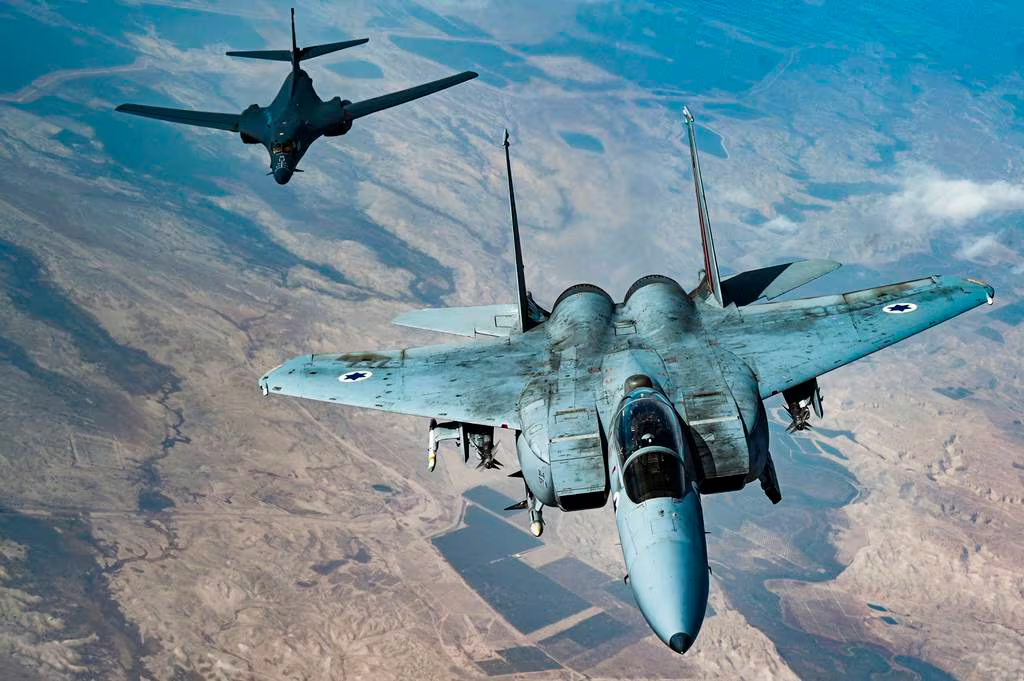
In a move likely to further inflame regional tensions, the United States has approved a $20 billion arms sale to Israel, encompassing advanced fighter jets, missiles, and other military equipment. The announcement, made by the State Department, comes as Israel remains embroiled in conflict with Hamas in Gaza and the broader Middle East teeters on the brink of wider unrest.
Details of the Deal
The arms package, which still requires Congressional approval, represents a significant bolstering of Israel’s military capabilities. Key components include:
- F-15 Fighter Jets: Up to 50 new Boeing F-15IA and F-15I+ fighter jets, along with upgrade kits for Israel’s existing fleet, form the most significant chunk of the deal, valued at nearly $19 billion.
- Advanced Missiles: The sale includes a substantial number of Advanced Medium Range Air-to-Air Missiles (AMRAAMs), significantly enhancing Israel’s air-to-air combat capabilities.
- Ground Warfare Equipment: The package also includes 33,000 120mm tank cartridges, 50,000 high-explosive mortar cartridges, and a fleet of Medium Tactical Vehicles, bolstering Israel’s ground forces.
Delivery Timeline and Long-Term Implications
The fulfillment of the arms agreement will be strategically managed over an extended period. Initial deliveries of military equipment are projected to commence in 2026. However, the procurement and manufacturing of the F-15 fighter jets necessitate a more protracted timeline, with the final delivery anticipated in 2029. This staggered implementation is standard practice for large-scale defense contracts and indicates the intricate production processes and logistical considerations involved.
A Delicate Balancing Act for the Biden Administration
The approval of this massive arms sale comes at a time when the Biden administration is facing increasing pressure to take a more critical stance towards Israel. The recent conflict in Gaza, which resulted in a significant number of civilian casualties, has fueled calls from some lawmakers and advocacy groups to limit military aid to Israel.
The administration has sought to balance its unwavering commitment to Israel’s security with efforts to broker a ceasefire in Gaza and prevent a wider regional conflagration. The recent assassinations of high-profile figures in Hamas and Hezbollah have further heightened fears of escalating violence, putting the Biden administration in a delicate diplomatic position.
Looking Ahead
The long-term geopolitical ramifications of this substantial arms deal are subject to ongoing analysis and debate within the international community. The United States government has consistently stated that the arms sale is intended solely to support Israel’s inherent right to self-defense and maintain regional security. However, this perspective is not universally shared.
Certain parties have raised concerns that the infusion of advanced weaponry could alter the existing regional power balance, potentially leading to unintended consequences. These concerns highlight the inherent complexities and sensitivities surrounding arms sales within a volatile geopolitical landscape.
The coming months will be critical in assessing the broader implications of this agreement. The evolving dynamics between regional actors and ongoing diplomatic efforts to address existing conflicts will likely be influential factors in shaping the long-term impact of this arms sale. The US government will need to navigate these complexities carefully while pursuing its stated foreign policy objectives in the region. This situation requires ongoing monitoring and assessment to anticipate and mitigate potential challenges.
